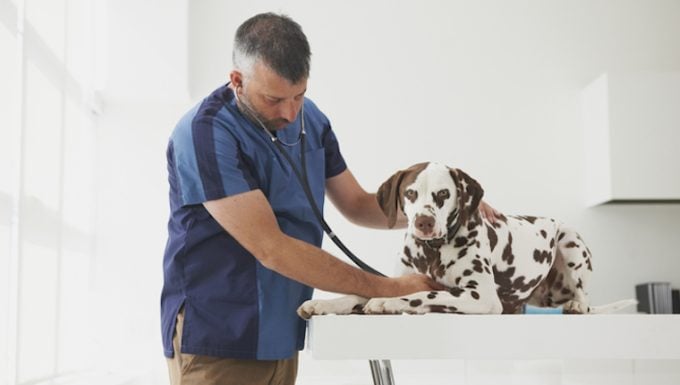- January 14, 2023
- No Comment
- 3 minutes read
Lung Cancer (Squamous Cell Carcinoma) in Dogs: Symptoms, Causes, & Treatments – DogTime

(Learn more about lung cancer (squamous cell carcinoma) in dogs. Picture credit: LWA/Dann Tardif/ Getty Images)
Lung cancer (squamous cell carcinoma) in dogs is an aggressive form of canine cancer. Although thankfully the condition is quite rare.
Unfortunately, older dogs and larger breeds are most at risk of the condition. For example, Labrador Retrievers and German Shepherds develop the condition more than other breeds.
Advertisement
Technically, the condition is also known as squamous cell carcinoma of the lungs in dogs. Although note that the condition is specific to the lungs and is different to squamous cell carcinoma. You can read about that condition here.
If you see the signs of the condition in your dog, then get to a veterinarian for a proper diagnosis and treatment.
Here’s what you should know about the symptoms, causes, and treatments for the condition.
The condition produces a number of symptoms. For example, some of the most common symptoms include:
(Picture credit: DragonImages / Getty Images)
The cause of the condition can be a number of things. For instance, some of the most common causes include:
Additionally, older dogs suffer from the condition more than young dogs. Also, larger breeds including German Shepherds and Labrador Retrievers develop the condition more often than usual.
Firstly, your vet will ask about your dog’s symptoms. Secondly, your vet will ask about your dog’s full medical history. This will include breed-specific problems.
Thirdly, a full physical examination will be carried out. Blood and urine tests will be taken. Additionally, an endoscope can help view any tumors and take tissue samples.
Ultimately, a biopsy of lung tissue can confirm the condition.
Generally, treatment involves surgery. This is to remove the cancerous areas. Also, chemotherapy is often used.
While recovering at home it is important to provide your dog with a quiet and calm environment. Also, exercise will need to be limited and monitored. Your vet can help formulate a safe exercise plan for your dog.
Have you ever cared for a dog who suffered from this condition? How did your vet help your dog recover? Let us know in the comments section below.

